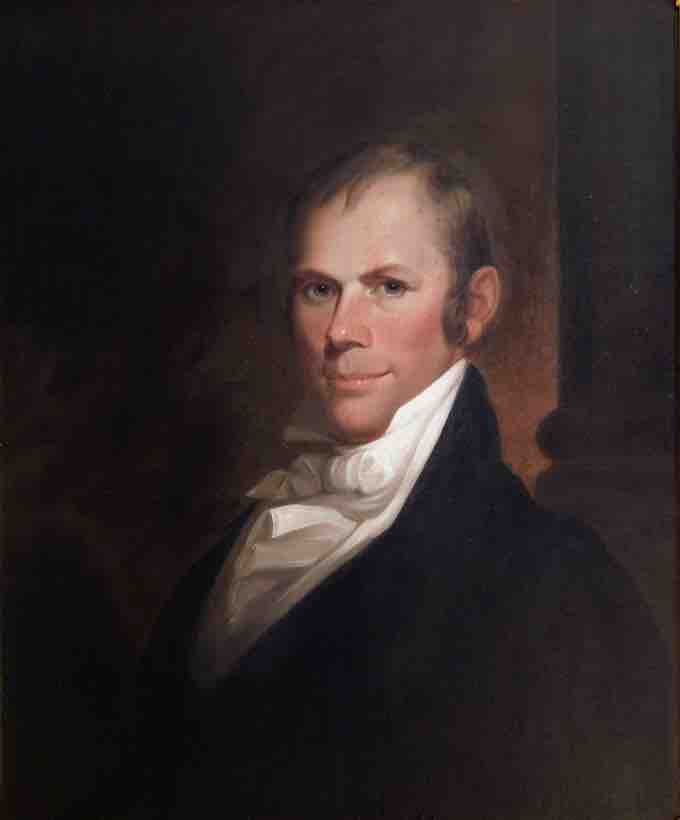Growing Pressure for War
President James Madison, who was elected as Thomas Jefferson's successor in 1808, was pressured by a faction of young Democratic-Republican congressmen from the South and West of the United States to go to war with Great Britain.
War Hawks
The term "war hawks" was a name used for a historical group of Democratic-Republicans in the early nineteenth century who pushed for war with Great Britain. The war hawks were primarily from southern and western states of the United States. The American West then consisted of the trans-Appalachian states of Kentucky, Tennessee, and Ohio, as well as territories in the Old Northwest (i.e., the Great Lakes states that did not yet have votes in Congress).
The term "hawk" was coined by the prominent Virginia congressman and Old Republican, John Randolph (of Roanoke), a staunch opponent to the entry into war. There was never any official roster of war hawks, and no universally acknowledged list exists. Most historians use the term to describe about a dozen members of the Twelfth Congress under President Madison. The primary leaders of the group were Speaker of the House Henry Clay of Kentucky and John C. Calhoun of South Carolina, both of whom would become major players in American politics for the next several decades. Other notable members included Richard Mentor Johnson of Kentucky, William Lowndes and Langdon Cheves of South Carolina, Felix Grundy of Tennessee, and William W. Bibb of Georgia.

Portrait of Henry Clay by Matthew Harris Jouett, 1818
A portrait of Henry Clay, the leader of the war hawks' western faction, painted after the War of 1812.
Arguments for Going to War
The war hawks advocated going to war with Britain for reasons related to the interference of the British Royal Navy in American shipping, which was hurting the American economy and, the war hawks believed, injuring American prestige. War hawks from the western states also believed that the British were instigating American Indians on the frontier to attack American settlements, and so the war hawks called for an invasion of British Canada to punish the British and end this threat. War hawks in both the South and the West also anticipated an easy opportunity for increasing the size of the new republic in the event of war: They hoped for the incorporation of British North America (present-day Canada) into the republic.
Opposition
Opposition to war came from Federalists, especially those in the Northeast, who knew conflict would disrupt the maritime trade on which they depended. The older members of the Democratic-Republican Party, led by President James Madison and Secretary of the Treasury Albert Gallatin, also tried unsuccessfully to defeat the war hawks movement, believing that the United States was not prepared for war—which in the end turned out to be true. In a narrow vote, Congress authorized the president to declare war against Britain in June 1812.